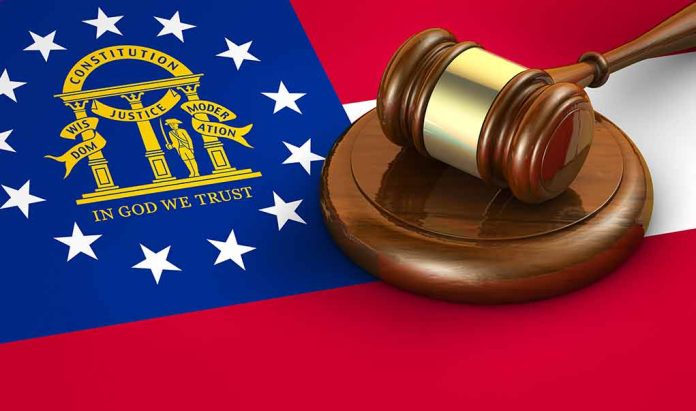
A federal judge’s demand for classified information in a Venezuelan deportation case has sparked fierce debate about judicial overreach and the limits of presidential authority in matters of national security.
Key Takeaways
- Judge James Boasberg ordered the Trump administration to provide details about deportations of Venezuelans under the 1798 Alien Enemies Act, prompting accusations of judicial overreach.
- The administration defied the court’s temporary restraining order and continued deportation flights to El Salvador, arguing presidential authority in national security matters.
- The dispute centers on the deportation of suspected members of the Venezuelan gang Tren de Aragua, which the administration has labeled as conducting “irregular warfare” within U.S. borders.
- The Department of Justice refused to disclose classified information, citing risks to national security and foreign relations.
- The case highlights tension between executive power and judicial oversight, likely headed to the Supreme Court for resolution.
Clash Between Branches of Government Intensifies
The Trump administration and federal Judge James Boasberg have reached an impasse in a high-stakes legal battle over the deportation of Venezuelan nationals. Judge Boasberg ordered the Department of Justice to submit a sworn statement confirming whether the Alien Enemies Act was used to deport Venezuelan men to El Salvador, despite his earlier directive to halt such flights. The judge also demanded information about when the presidential proclamation authorizing these deportations was signed and its effective date.
The administration has firmly rejected these demands, arguing that the court has overstepped its constitutional bounds. The Department of Justice maintained that the judge’s oral directive was not enforceable as a formal injunction and continued deportation operations despite the temporary restraining order. This confrontation represents a significant test of the separation of powers doctrine that underpins American governance.
National Security Concerns vs. Judicial Oversight
At the heart of this dispute is the Trump administration’s invocation of the Alien Enemies Act to target suspected members of Tren de Aragua, a Venezuelan gang. The administration has characterized the gang’s activities as an “invasion” and a form of “irregular warfare” against the United States. The proclamation enabling these deportations is similar to an executive order designating cartels as foreign terrorist organizations, reflecting the administration’s priority on addressing what it considers a serious threat to public safety.
The Department of Justice has strongly resisted the court’s demand for information, arguing that national security operations must not be compromised. In court filings, the administration stated, “The Government cannot and will not be forced to answer sensitive questions of national security and foreign relations in a rushed posture without orderly briefing and a showing that these questions are somehow material to a live issue.” This stance reflects longstanding executive branch positions regarding classified information and presidential authority.
Constitutional Questions and Historical Context
The Alien Enemies Act, last invoked during World War II, requires an invasion by a foreign government to be legally triggered. Critics argue this requirement is not met in the current situation and that the administration is stretching the law beyond its intended scope. Civil rights groups, led by the ACLU, have filed emergency requests to block its use, contending that it allows deportation without due process protections normally afforded to immigrants facing removal.
The administration has countered that the president has constitutional and statutory authority to address what it considers an invasion, “The district court has enjoined the President from using his statutory and constitutional authority to address what he has identified as an invasion or predatory incursion by a group undertaking hostile actions and conducting irregular warfare”, declared the administration. This argument frames the judge’s intervention as an inappropriate constraint on executive power in matters of national security.
International Arrangements and Appeal Process
The case has revealed that the United States paid El Salvador $6 million to detain deported individuals, highlighting the international dimensions of the administration’s immigration policy. The Department of Homeland Security has revoked protections for Venezuelans, citing gang activity as justification. These actions represent part of a broader strategy to combat transnational criminal organizations through aggressive deportation measures and international cooperation.
The Trump administration has already appealed the lower court’s decision, and the dispute is widely expected to reach the Supreme Court. The case raises fundamental questions about the extent to which courts can review executive actions in areas of national security and immigration enforcement. The resolution of this conflict will likely establish important precedents for the balance of power between the judicial and executive branches in matters of national security for years to come.
Sources:
Judge demands details from Trump administration over Venezuelans on deportation flights
The judge who tried to stop the deportation planes is not happy with the Trump administration
That Little Judge in the Venezuelan Deportation Dispute Is Making a Ridiculous Demand



